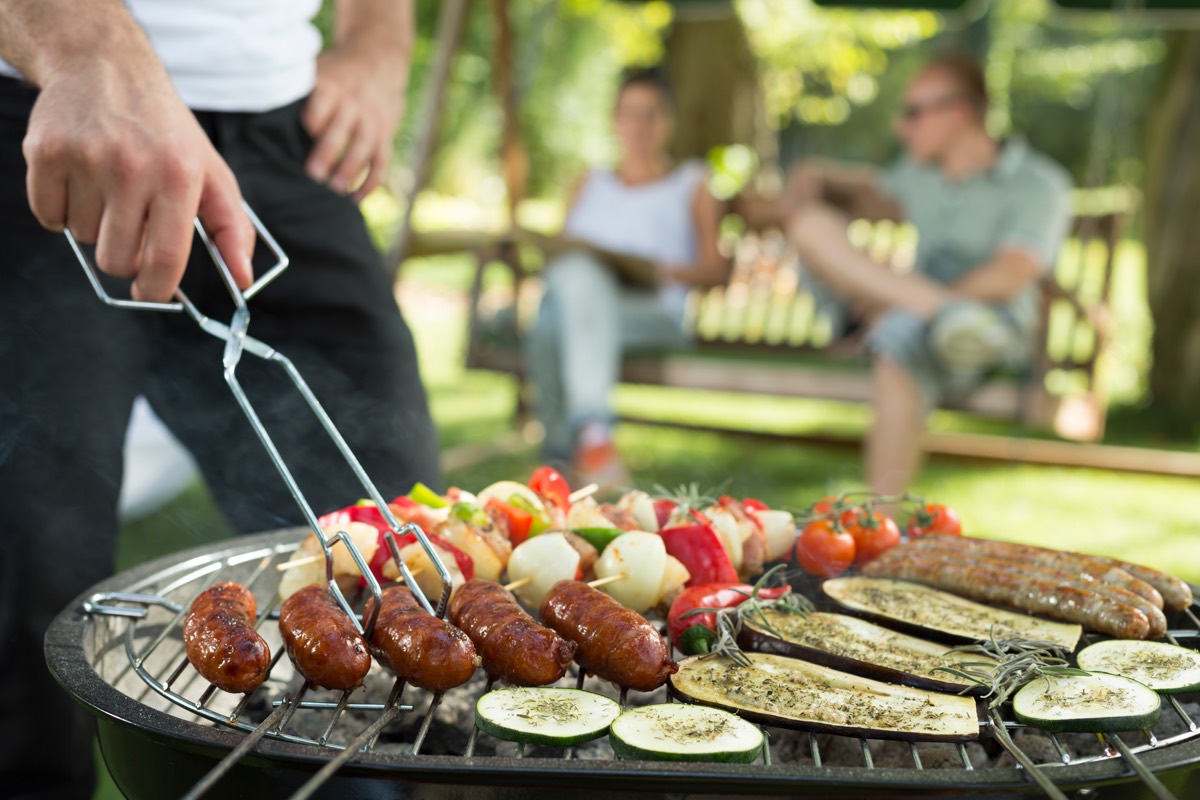
Why Does Grilled Food Turn Black?

Outdoor cooking is a Memorial Day weekend staple, as are the crispy black stripes on just-off-the-grill food. But why does high heat turn food black?
Before we delve into the mystery of charred meat, it should be noted that barbequing and grilling are actually two different things. Although the word barbeque is sometimes used to describe any act of outdoor food preparation, "barbeque" actually refers to meat slow-cooked over charcoal or wood. The Memphis in May World Championship Barbecue Cooking Contest, held annually in Memphis, Tenn., defines barbecue even more strictly, as "pork meat (fresh or frozen and uncured) prepared only on a wood and/or charcoal fire."
Because authentic barbecue is cooked at low temperatures, it rarely blackens, though soot from the wood fire may turn it dark brown.
In contrast, cooking foods on a grill over high heat can lead to a charred crust on your chicken breasts or steak. The black stuff is made by a simple combustion reaction. First, heat creates a browning reaction in amino acids and sugars, food chemist Sara Risch told ScienceNews. If heat is continually applied, the meat will begin to burn. As sugars and proteins burn away, they leave behind blackened, partially-combusted carbon, a common element in all living things.
A little bit of charred carbon can lend a smoky flavor to meat, but a lot can be dangerous. A study presented at the 2006 American Association for Cancer Research meeting found that the chemicals in charred meat raised the risk of prostate cancer in rats, and a 2009 study presented at the American Association for Cancer Research meeting found that pancreatic cancer in humans is linked to consumption of well-done meat. This summer, you might be better off turning down the grill — or firing up the slow-cooker.
- Why Does Ice Cream Cause Brain Freeze?
- Why do Chili Peppers Taste Hot?
- How to BBQ a Healthier Burger
Sign up for the Live Science daily newsletter now
Get the world’s most fascinating discoveries delivered straight to your inbox.

Stephanie Pappas is a contributing writer for Live Science, covering topics ranging from geoscience to archaeology to the human brain and behavior. She was previously a senior writer for Live Science but is now a freelancer based in Denver, Colorado, and regularly contributes to Scientific American and The Monitor, the monthly magazine of the American Psychological Association. Stephanie received a bachelor's degree in psychology from the University of South Carolina and a graduate certificate in science communication from the University of California, Santa Cruz.









